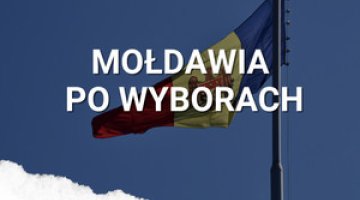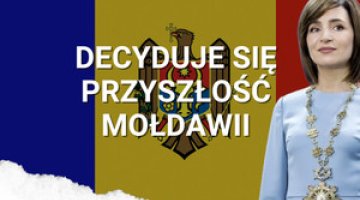Moldova: parliament approves a new government linked with pro-Russian socialists
On 14 November 2019, Moldova’s parliament voted in a new minority government with 62 votes in favour out of 101. It will be led by Ion Chicu, formally a politically non-aligned politician. His candidacy for the office of prime minister had been proposed by President Igor Dodon one day earlier. In a vote of confidence on the Chicu cabinet, MPs of the pro-Russian Party of Socialists (PSRM) and the Democratic Party of Moldova (PDM), which until June 2019 had been led by oligarch and billionaire Vlad Plahotniuc, were in favour. The pro-European ACUM bloc, which until 12 November had formed a ruling coalition alongside the PSRM, voted against the new government.
Commentary
- The formally politically non-aligned Ion Chicu is in fact associated both with the socialists and with the Democratic Party (his candidacy as an “independent” prime minister was being considered by the PDM as early as following the parliamentary elections in February 2019). During the PDM’s rule (i.e. until June 2019), he had worked at the Ministry of Finance (initially as secretary of state and later as the minister), where he was responsible for example for implementing a controversial law enabling the so-called “amnesty of capital”. The new regulations were likely intended to help legalise the dubious income of members of the state apparatus as well as entrepreneurs linked with them and foreign politicians. In June 2019, Chicu was appointed as an adviser to Dodon. The new government line-up includes several other current advisers to the president and to Zinaida Greceanîi, parliamentary speaker and head of the PSRM. They have been appointed ministers of Justice, Foreign Affairs, Defence, Education, Health and Agriculture.
- The removal of the pro-European ACUM bloc from power and the appointment of Ion Chicu’s government backed by the PSRM and the PDM is tantamount to stopping the genuine structural reforms launched in June 2019 by the government headed by Maia Sandu. In recent years, prominent representatives of the Party of Socialists (which is de facto led by President Dodon) and of the Democratic Party of Moldova have been involved in a series of corruption schemes (including the embezzlement of US$ 1 billion from the Moldovan banking sector in 2014). Therefore, these parties are not interested in creating an independent judiciary which would launch a genuine fight against corruption because this would pose a threat to their members’ personal freedom and assets (the issue of appointing an independent prosecutor lay at the root of the fall of the PSRM-ACUM coalition). This was also the reason why the Democratic Party, which was formally in conflict with the PSRM, decided to support the Chicu government. However, it should be expected that the new cabinet will feign reforms as far as possible in order to maintain at least a portion of the Western financial aid which Moldova received during the Sandu government’s rule.
- There is no doubt that Prime Minister Chicu’s government will be fully subordinate to President Dodon and the PSRM. Moscow’s approach to post-Soviet states usually sees it strive to back pro-Russian groups and marginalise those with a pro-Western orientation. It will thus look favourably on the removal of the ACUM from the ruling coalition and the appointment of a cabinet dominated by individuals linked with the Party of Socialists, alongside the elimination of Vlad Plahotniuc from the Moldovan political scene (he fled the country following the formation of the PSRM-ACUM coalition in June 2019).





